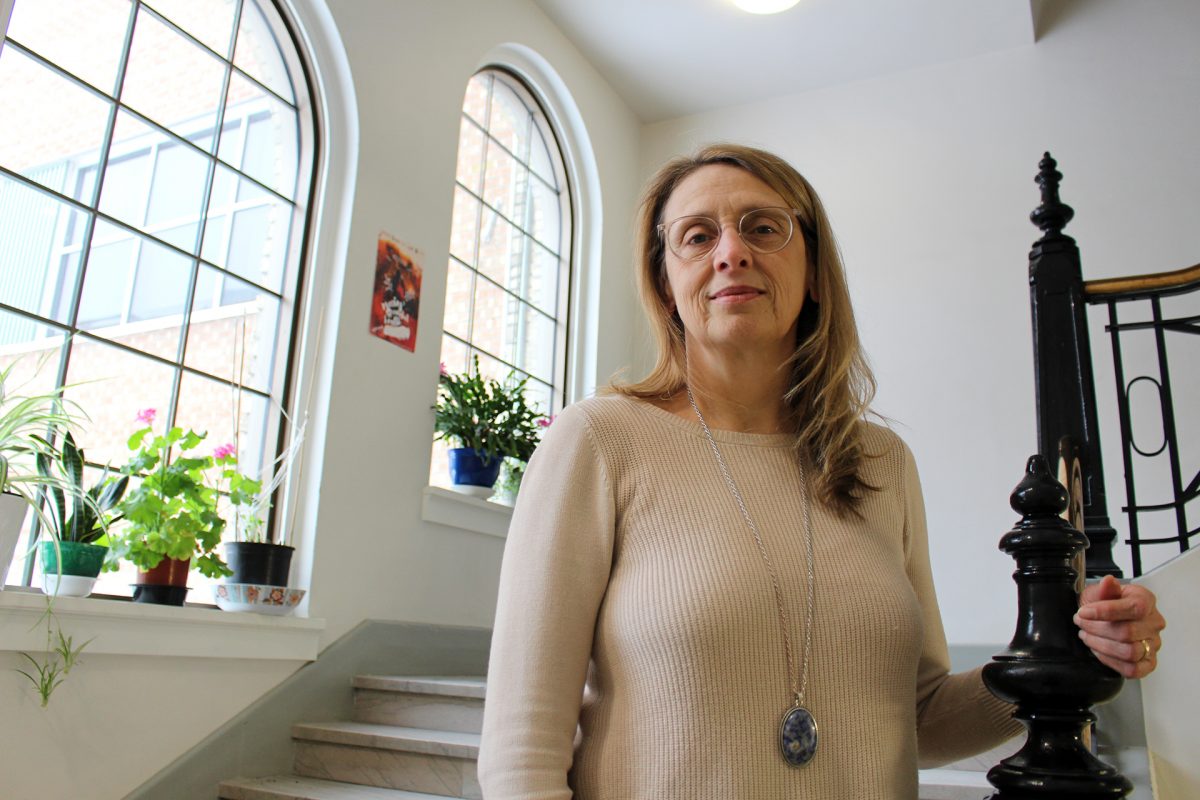
New community health sciences department head Dr. Sharon Bruce.
The science behind the social determinants of health
New community health sciences head plots future
Dr. Sharon Bruce, new head of community health sciences (CHS) in the Max Rady College of Medicine, is taking the lead of a growing and changing department situated within an evolving discipline.
Since its last strategic planning session 10 years ago, CHS has changed in numbers and structure, adding 20 new full-time faculty members. The department is bringing in four new Canada Research Chairs this year. The J.A. Hildes Northern Medical Unit has become Ongomiizwin – Health Services in the Rady Faculty level Indigenous Institute of Health and Healing, which shares many faculty members with CHS. The Manitoba Centre of Health Policy has expanded in scope and the Centre for Global Public Health is also growing.
Other changes include the merger with the department of family social sciences, which brought CHS expertise in teaching and research related to the family, and an undergraduate program based out of Fort Garry campus.
“It’s a really productive department, we’re involved in so many things – undergraduate, undergraduate medical education, graduate, post-graduate residency programs,” says Bruce. “There’s a great variety of research going on. I’m taking over at a time when the department is very strong.”
Bruce, who started in her new role at the beginning of January, will have to take all of these changes into account, as well as wider social developments such as the Truth and Reconciliation Commission’s calls to action, and collaboratively provide leadership as the department plots out its future direction.
“I think one of the things we need to do is take a look at our identity. All of these things are coming together, we really need to ask – who we are as a department, what our goals are, and what our priorities are moving forward,” she says.
A recent major change was the transition of the CHS undergraduate program from the former family social science program to the new Bachelor of Health Studies interdisciplinary health program, where the department will deliver four required courses for all IHP students, and provide leadership for the Family Health concentration. It raises questions about what it means to be part of a bigger Rady Faculty of Health Sciences’ interdisciplinary program.
“It’s a very important field. Many students want to study areas like family violence, child development and aging. We really have to ensure its continued success. At the faculty level, we’ll work to ensure the Bachelor of Health Studies is a strong and well-subscribed program,” Bruce says.
Bruce also noted the evolution in the relationship between their researchers and the communities and people they are working with, and how research is increasingly being directed by communities and community organizations.
For over 15 years, Bruce’s primary research partner has been Sandy Bay Ojibway First Nation, collaboratively studying the epidemiology and impact of diabetes. She says she has learned a lot about community-based research and self-determination from her work with Sandy Bay. The relationship was not one of a researcher studying community members, but of an engaged community that knew exactly what type of information they required in order to develop the health programs they needed.
“It relates back to why this department was started in the first place. It was to provide better services, understand services, understand needs, and be able to address the non-medical aspects and identify why the disparities were there and address them,” she says.
The department is increasingly working with diverse groups such as LGBTQ+, newcomer communities, and people who are differently abled. Their research explores the mechanisms of how certain groups are marginalized, looking at unequal power relations and actively working to change those power dynamics.
Bruce, speaking with pride about the work her colleagues are doing, is optimistic about the direction the department is headed. She says her role as head is to support the faculty and students in order to foster success.
“The idea of social determinants of health, looking at the political, economic and structural drivers of poor health status, continues to change as the science advances and people here are at the forefront of making the changes.”






